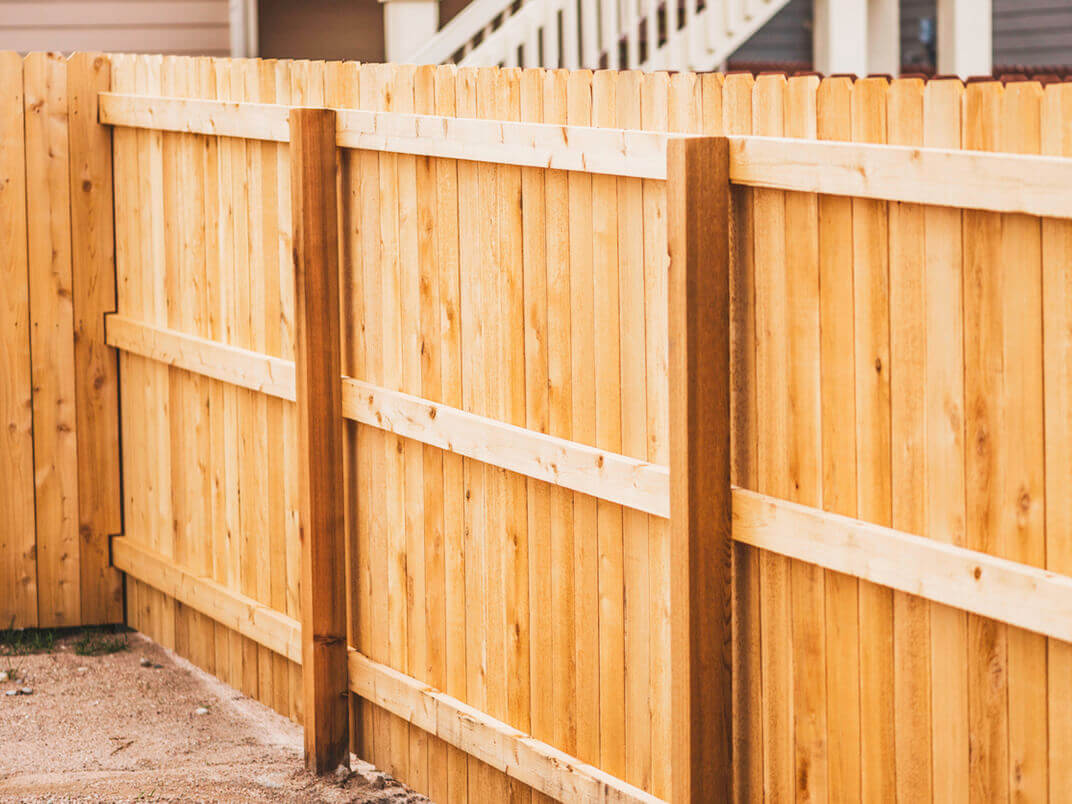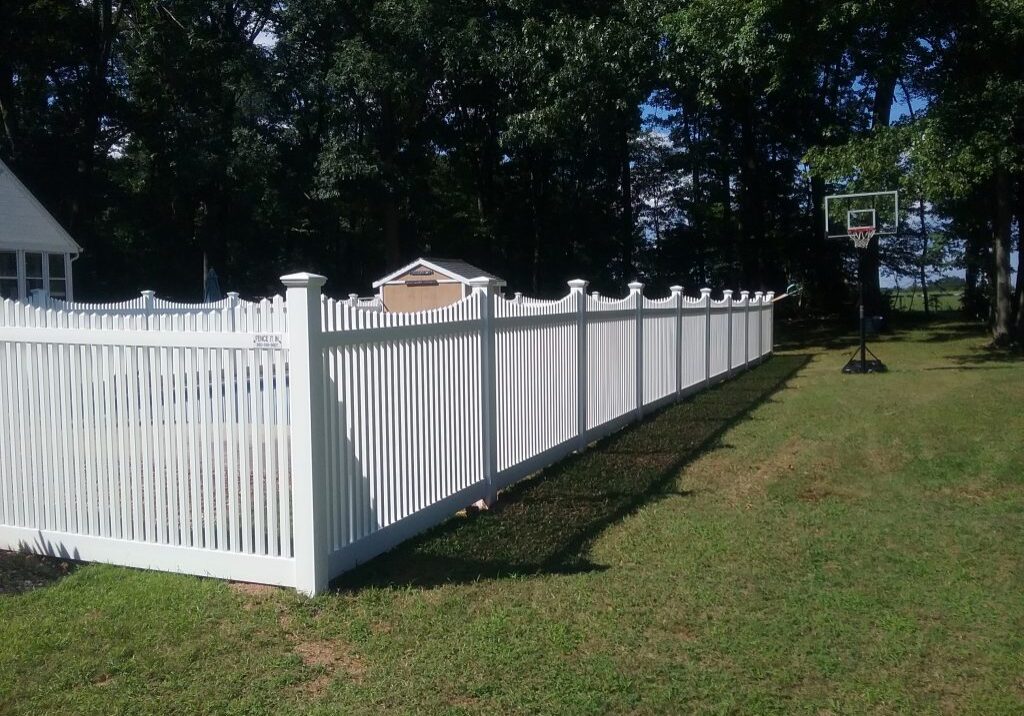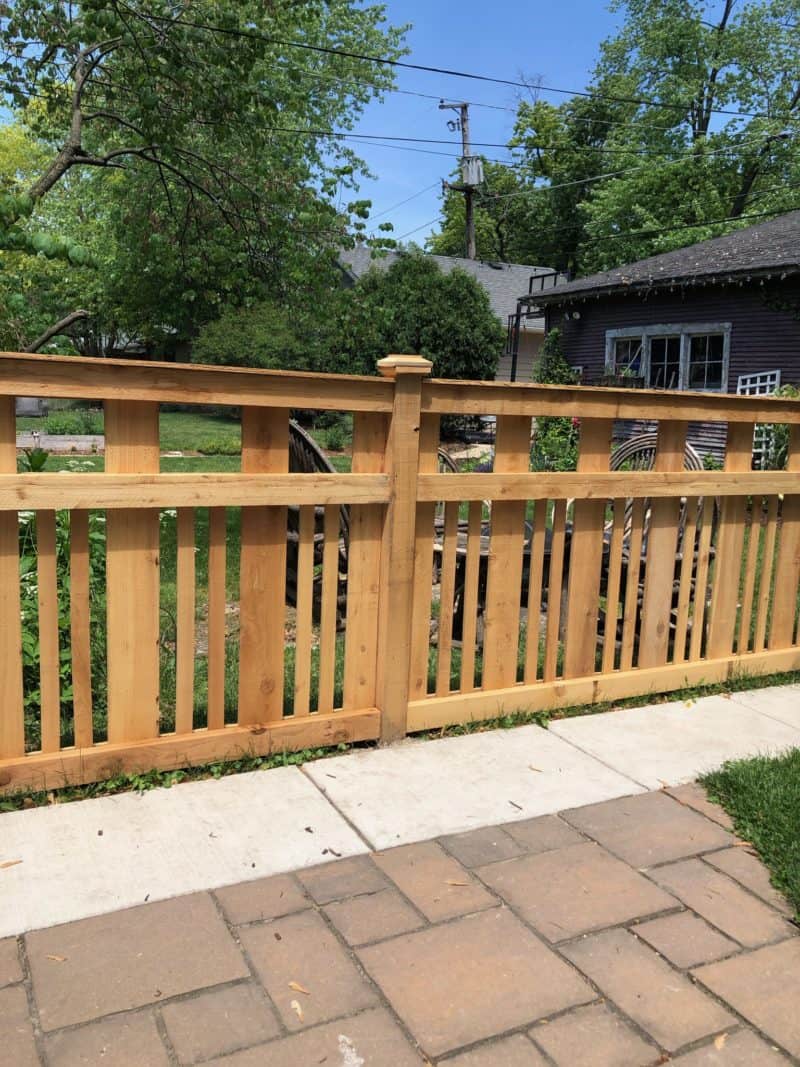All Categories
Featured
When picking a fencing for your residential property, it's vital to think about elements like expense, toughness, maintenance, and aesthetic charm. Three of the most popular materials for domestic and industrial fencings are plastic, aluminum, and timber.
Wood Fencing. Pros:
![]()
Natural Visual: Timber fencings are understood for their classic, natural look. They can conveniently mix right into the majority of landscapes and improve the charm of your home or company. Whether you're going for a rustic look or an extra polished surface, timber can be tailored with paint, tarnish, or sealer. Personalization: Wood is one of the most versatile products, enabling a wide array of styles, such as picket fences, personal privacy fencings, and ranch-style units. It's easy to readjust the design to fit the certain needs of your home. Budget-friendly: Usually, timber fencings come with a reduced preliminary expense compared to vinyl or aluminum, making them an affordable choice for those on a budget plan. Disadvantages:
Upkeep Requirements: Timber fencings need routine upkeep to maintain their elegance and functionality. This includes discoloration or painting to secure versus rot, termites, and climate damages. Without proper care, wood can deteriorate over time. Much Shorter Lifespan: Compared to vinyl or aluminum, wood fencings have a tendency to have a much shorter life-span, particularly in areas with severe weather condition. Severe conditions, such as hefty rain, moisture, or snow, can trigger wood to degrade quicker. Prone to Damages: Timber fencings are prone to damage from bugs, including termites, as well as all-natural wear from climate. They might also warp or crack if not appropriately maintained. Plastic Fencing. Pros:
Reduced Maintenance: One of the major benefits of plastic fences is that they need very little upkeep. Unlike timber, vinyl does not need to be repainted, sealed, or discolored. It's resistant to fading, discoloration, and fracturing, which saves money and time on maintenance. Sturdiness: Vinyl is known for its capacity to stand up to severe weather condition conditions without wearing away. It's unsusceptible parasites like termites, and its resistance to moisture and UV rays ensures it stays looking good for several years. Durable: A plastic fencing can last approximately 30 years or even more, making it a great long-lasting investment. Lots of makers use service warranties, even more enhancing its worth. Variety of Styles: Plastic fencings are readily available in different shades and styles, including those that simulate timber. You can choose from personal privacy, picket, or attractive designs, providing versatility to match your home or business. Disadvantages:
![]()
Higher Upfront Cost: Plastic fences often tend to have a greater initial cost than timber. While the long-lasting financial savings on maintenance are substantial, the ahead of time financial investment may be a deterrent for some home owners. Minimal Modification: Plastic fencings been available in typical styles, and while styles and colors are varied, you may not have as much versatility for customization contrasted to wood. Splitting in Cold Climates: While vinyl is durable, in extremely cold climates, it can come to be weak and fracture upon impact, which might be bothersome in locations with rough winters. Light weight aluminum Fence. Pros:
Low Maintenance: Aluminum fences are recognized for their low-maintenance requirements. Unlike wood, aluminum does not rust or wear away, and it doesn't need to be repainted or secured. This makes it a wonderful selection for those who want an easy choice. Longevity and Stamina: Light weight aluminum is a durable product that stands well to harsh climate condition. It's an exceptional choice for seaside areas where saltwater corrosion is a worry, as it's resistant to rust. Visual Appeal: Aluminum fences provide a clean, elegant look, commonly made use of for attractive purposes. They're readily available in numerous styles, including decorative layouts, and can include a high-end feeling to your building. Security: Light weight aluminum fences are long lasting and offer great safety and security, specifically when installed with gateways or locks. Their durable building offers a dependable obstacle against undesirable access. Cons:
![]()
Higher First Price: Aluminum fencings have a tendency to be a lot more expensive than timber, particularly if you go with attractive designs. The upfront price may be prohibitive for some. Less Privacy: Light weight aluminum fencings generally have larger gaps in between the slats, which indicates they provide less privacy than wood or plastic fences. If privacy is a concern, light weight aluminum may not be the very best option. Nicking Concerns: While light weight aluminum is rust-resistant, it is at risk to flexing or denting if struck with pressure. An automobile crash or hefty impact can create lasting damages to the fence. Which Fence Material is Right for You? Choosing the appropriate fence depends upon a number of aspects, including your budget plan, style preferences, upkeep capacity, and the environment in which you live. If you want an all-natural look and are prepared for regular upkeep, wood could be the right alternative. Vinyl is an excellent selection if low-maintenance and longevity are your top priorities. For those who like a sleek, modern-day look with very little treatment, light weight aluminum offers a long-lasting, secure solution.
Eventually, each fence product has its benefits and drawbacks, so it is essential to examine what matters most for your details requirements. Think about the climate, the level of personal privacy you require, and just how much upkeep you're eager to devote to, and you'll find the perfect fencing for your home.
Wood Fencing. Pros:

Natural Visual: Timber fencings are understood for their classic, natural look. They can conveniently mix right into the majority of landscapes and improve the charm of your home or company. Whether you're going for a rustic look or an extra polished surface, timber can be tailored with paint, tarnish, or sealer. Personalization: Wood is one of the most versatile products, enabling a wide array of styles, such as picket fences, personal privacy fencings, and ranch-style units. It's easy to readjust the design to fit the certain needs of your home. Budget-friendly: Usually, timber fencings come with a reduced preliminary expense compared to vinyl or aluminum, making them an affordable choice for those on a budget plan. Disadvantages:
Upkeep Requirements: Timber fencings need routine upkeep to maintain their elegance and functionality. This includes discoloration or painting to secure versus rot, termites, and climate damages. Without proper care, wood can deteriorate over time. Much Shorter Lifespan: Compared to vinyl or aluminum, wood fencings have a tendency to have a much shorter life-span, particularly in areas with severe weather condition. Severe conditions, such as hefty rain, moisture, or snow, can trigger wood to degrade quicker. Prone to Damages: Timber fencings are prone to damage from bugs, including termites, as well as all-natural wear from climate. They might also warp or crack if not appropriately maintained. Plastic Fencing. Pros:
Reduced Maintenance: One of the major benefits of plastic fences is that they need very little upkeep. Unlike timber, vinyl does not need to be repainted, sealed, or discolored. It's resistant to fading, discoloration, and fracturing, which saves money and time on maintenance. Sturdiness: Vinyl is known for its capacity to stand up to severe weather condition conditions without wearing away. It's unsusceptible parasites like termites, and its resistance to moisture and UV rays ensures it stays looking good for several years. Durable: A plastic fencing can last approximately 30 years or even more, making it a great long-lasting investment. Lots of makers use service warranties, even more enhancing its worth. Variety of Styles: Plastic fencings are readily available in different shades and styles, including those that simulate timber. You can choose from personal privacy, picket, or attractive designs, providing versatility to match your home or business. Disadvantages:

Higher Upfront Cost: Plastic fences often tend to have a greater initial cost than timber. While the long-lasting financial savings on maintenance are substantial, the ahead of time financial investment may be a deterrent for some home owners. Minimal Modification: Plastic fencings been available in typical styles, and while styles and colors are varied, you may not have as much versatility for customization contrasted to wood. Splitting in Cold Climates: While vinyl is durable, in extremely cold climates, it can come to be weak and fracture upon impact, which might be bothersome in locations with rough winters. Light weight aluminum Fence. Pros:
Low Maintenance: Aluminum fences are recognized for their low-maintenance requirements. Unlike wood, aluminum does not rust or wear away, and it doesn't need to be repainted or secured. This makes it a wonderful selection for those who want an easy choice. Longevity and Stamina: Light weight aluminum is a durable product that stands well to harsh climate condition. It's an exceptional choice for seaside areas where saltwater corrosion is a worry, as it's resistant to rust. Visual Appeal: Aluminum fences provide a clean, elegant look, commonly made use of for attractive purposes. They're readily available in numerous styles, including decorative layouts, and can include a high-end feeling to your building. Security: Light weight aluminum fences are long lasting and offer great safety and security, specifically when installed with gateways or locks. Their durable building offers a dependable obstacle against undesirable access. Cons:

Higher First Price: Aluminum fencings have a tendency to be a lot more expensive than timber, particularly if you go with attractive designs. The upfront price may be prohibitive for some. Less Privacy: Light weight aluminum fencings generally have larger gaps in between the slats, which indicates they provide less privacy than wood or plastic fences. If privacy is a concern, light weight aluminum may not be the very best option. Nicking Concerns: While light weight aluminum is rust-resistant, it is at risk to flexing or denting if struck with pressure. An automobile crash or hefty impact can create lasting damages to the fence. Which Fence Material is Right for You? Choosing the appropriate fence depends upon a number of aspects, including your budget plan, style preferences, upkeep capacity, and the environment in which you live. If you want an all-natural look and are prepared for regular upkeep, wood could be the right alternative. Vinyl is an excellent selection if low-maintenance and longevity are your top priorities. For those who like a sleek, modern-day look with very little treatment, light weight aluminum offers a long-lasting, secure solution.
Eventually, each fence product has its benefits and drawbacks, so it is essential to examine what matters most for your details requirements. Think about the climate, the level of personal privacy you require, and just how much upkeep you're eager to devote to, and you'll find the perfect fencing for your home.
Latest Posts
Check Out Brake Repair & More: Comprehensive Auto Care Solutions from Montclare Auto Repair
Published May 28, 25
1 min read
Unlock WyHy Federal Credit Union – Wyoming’s Best Banking Choice for Your Money Goals
Published May 26, 25
1 min read
Join Your Financial Partner at WyHy – Top Benefits for Your Goals
Published May 25, 25
1 min read
More
Latest Posts
Check Out Brake Repair & More: Comprehensive Auto Care Solutions from Montclare Auto Repair
Published May 28, 25
1 min read
Unlock WyHy Federal Credit Union – Wyoming’s Best Banking Choice for Your Money Goals
Published May 26, 25
1 min read
Join Your Financial Partner at WyHy – Top Benefits for Your Goals
Published May 25, 25
1 min read